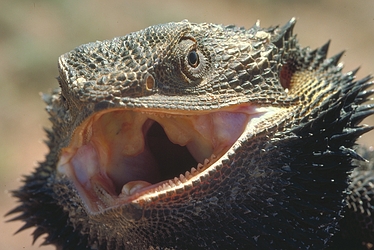Free Bearded Dragon to Good Home: What You Need to Know Before Adopting One
Introduction
Are you looking for a new pet to add to your family? Why not consider adopting a bearded dragon? These unique and fascinating creatures have become increasingly popular as pets due to their relatively low maintenance and friendly nature. If you are interested in adopting a bearded dragon, keep reading to learn all about them and what you need to know before bringing one into your home.
What is a Bearded Dragon?
Bearded dragons are a species of lizard native to Australia. They are named for the spiny projection under their chin which resembles a beard. Bearded dragons are diurnal, meaning they are primarily active during the day and sleep at night. They have broad, triangular-shaped heads and flat bodies covered in bumpy, spiny scales. Bearded dragons are also known for their frilled necks, which they can puff out as a defense mechanism, making them appear larger and more threatening to potential predators.

Bearded Dragon Care
Bearded dragons are relatively easy to care for compared to some other reptile species. However, they still require some specific care requirements to remain healthy and thrive in captivity. Here are some things you will need to know before adopting a bearded dragon:
Habitat
Bearded dragons require a spacious enclosure with plenty of room for them to move around and bask in the heat. A 40-gallon tank or larger is recommended for adult bearded dragons. Furnish the enclosure with a substrate (substrate refers to the material that lines the bottom of the enclosure), such as reptile carpet, paper towels or tile. Avoid using sand, as it can cause impaction if ingested.

Heat and Light
Bearded dragons are cold-blooded, which means they need an external source of heat to regulate their body temperature. Provide them with a heat lamp and a UVB bulb to create a basking spot of 90-110°F (32-43°C) and a cooler area of 75-85°F (23-29°C). You will also need to provide a full-spectrum UVB light, which is important for the production of Vitamin D3 to prevent metabolic bone disease.

Diet
Bearded dragons are omnivorous, meaning they eat both plant and animal matter. Feed your bearded dragon a diet of insects (such as dubia roaches, crickets, and mealworms) and dark leafy greens. Offer vegetables and fruits as treats. Dust the insects with calcium and vitamin D3 powder before feeding them to your bearded dragon.

Adopting a Free Bearded Dragon
If you have decided that a bearded dragon is the right pet for you, you may have seen ads for free bearded dragons to good homes. Be cautious when adopting a free bearded dragon, as there may be hidden costs or health issues. Here are some tips to keep in mind:
Ask Questions
Ask the person giving away the bearded dragon why they are looking to rehome them. Make sure to ask about any health issues or concerns, and get a full history of their care.
Get a Vet Checkup
Take your new bearded dragon to the vet as soon as possible for a checkup. This will ensure that they are healthy and provide you with any information you need to properly care for them.
Be Prepared for Costs
While the bearded dragon may be free, there are still costs associated with caring for them. Be prepared to purchase a suitable enclosure and all the necessary equipment, such as heat lamps and UVB lights. Food, supplements, and vet care also come with a price tag, so make sure you can afford to care for your bearded dragon properly.
Adopting a free bearded dragon can be an excellent way to provide a loving home to a pet in need. However, it is important to do your research and be prepared for the responsibilities and costs that come with caring for a bearded dragon.
Conclusion
Bearded dragons are a unique and fascinating pet that make great additions to many households. If you are interested in adopting a bearded dragon, make sure to research their care requirements and be prepared for the necessary costs. Whether you adopt a free bearded dragon or purchase one from a breeder, with proper care and attention, your new pet will bring you years of joy and companionship.
